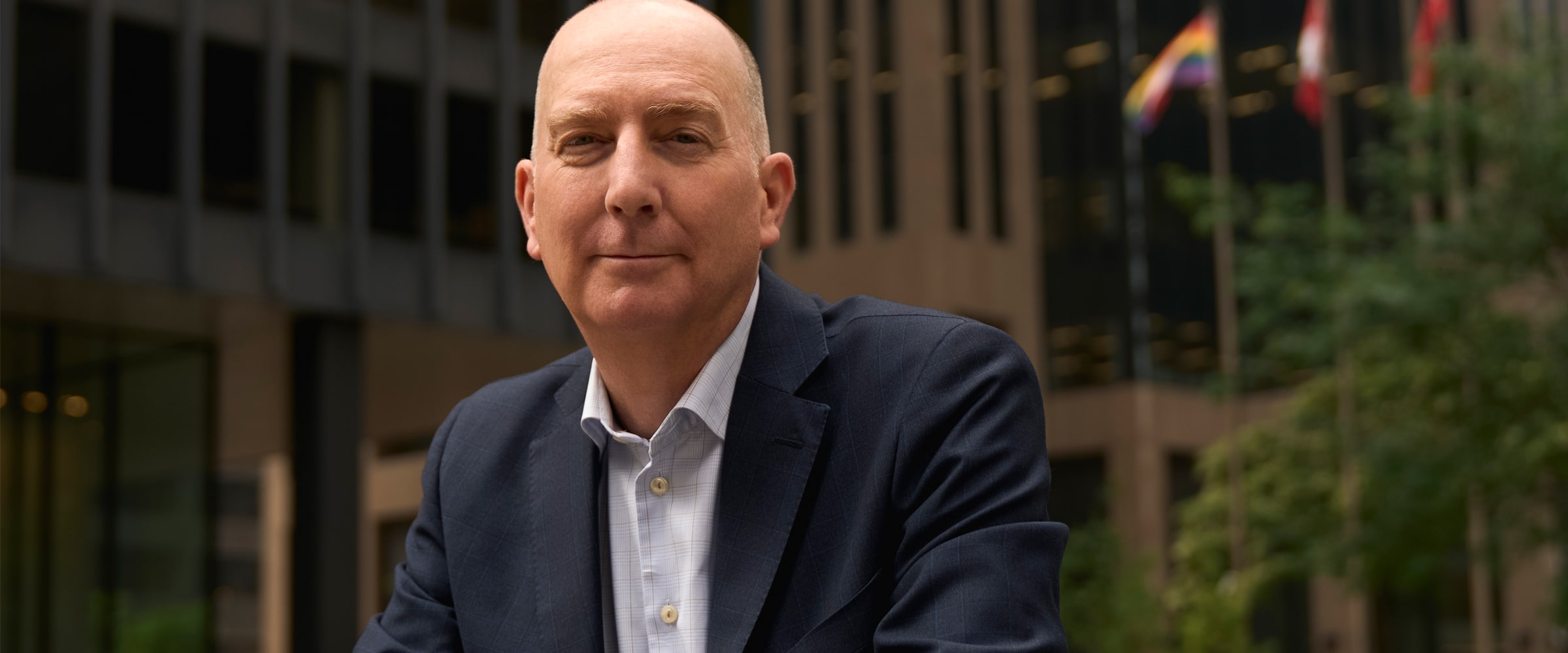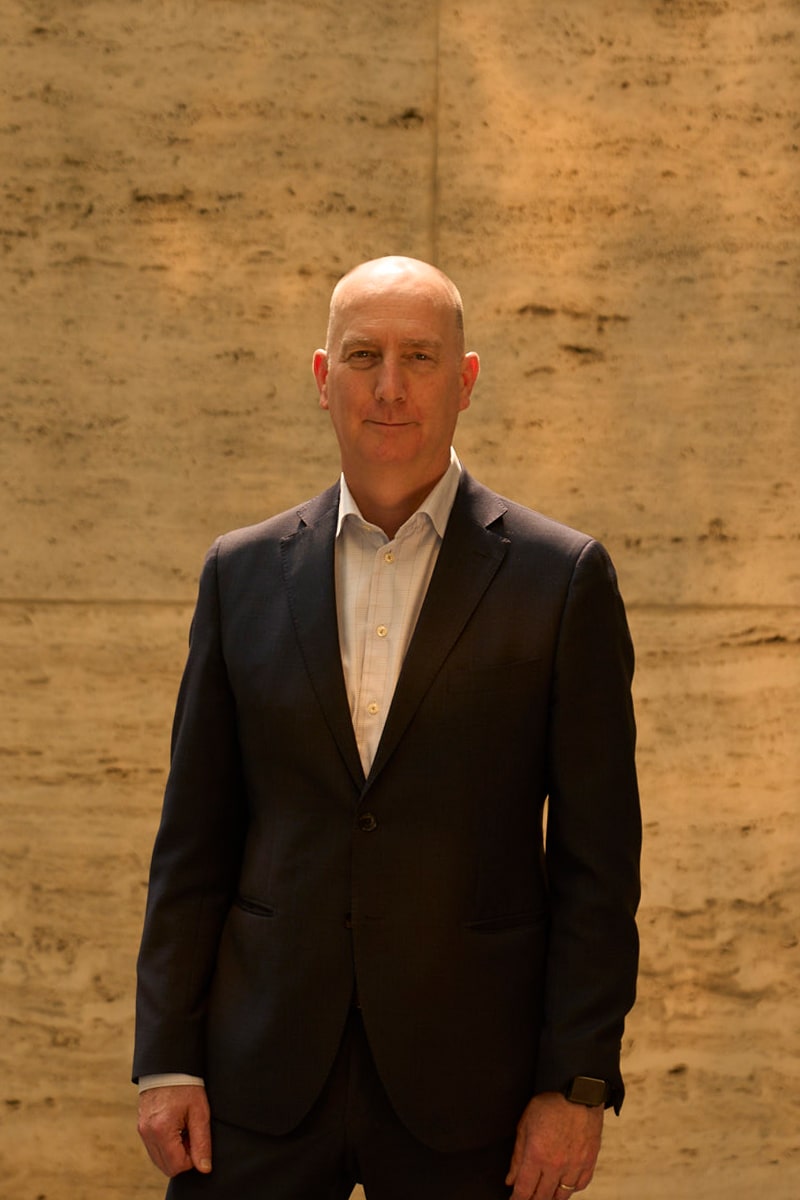
From buzzword to boardroom:
With the growing recognition that sustainability and responsible business practices are critical to long-term value creation, there is an evolving need for greater transparency and accountability from companies. Hear from Chief Operating Officer and Board Director Martin Dockrill on how Avison Young’s corporate governance practices are evolving to incorporate environmental and social impact risks and opportunities, and how prioritizing performance in these areas is helping the company gain a competitive advantage.How important is it to embed sustainability at a boardroom level?
Avison Young’s Board of Directors and Executive Committee both play a critical role in overseeing our company’s strategy, risk management, and performance. The Board embodies the Principal-led values and behaviours of the company. By proactively integrating environmental and social impact considerations into our governance practices, our executives ensure that delivery challenges and opportunities are embedded in the company’s day-to-day decision-making processes, aligning with our overall business strategy and long-term goals. This is an integral part of our growth strategy, demonstrated through driving social impact and urban transformation, and partnering with organizations such as the World Economic Forum.
Effective governance requires a proactive and engaged board that is committed to understanding and addressing environmental and social risks and opportunities. How is Avison Young addressing this?
We worked to establish a board and executive committee that has the necessary expertise and resources. This means making sure our committees are diverse and have members with specific experience and expertise in environmental and social issues. Plus, it’s important to establish clear lines of responsibility and accountability for performance in these areas.
We have an integrated approach to identifying, evaluating and controlling risk. Whether for corporate-level compliance, future risks to revenue generation or operational and insured risks. Our enterprise risk assessment is undertaken regularly, overseen by our Global Risk and Compliance Officer and country risk management committees, in conjunction with our country leaders, country chief operating officers and service line leaders across our business.
Then, it’s about making sure that environmental and social issues are firmly operationalized, that we’re constantly optimizing our approach, and effectively communicating our performance in a transparent and authentic way with our people and other stakeholders.
They say what gets measured, gets managed. What is Avison Young doing to enhance the measurement and management of environmental and social data and performance?
Since 2016 we have been tracking and publicly reporting our operational emissions, and we’ve started evolving our non-financial reporting processes to align with and map progress toward our Net Zero target to achieve net zero in all our global workspaces by 2040.
To that point, as we move or update our workspaces, we’re becoming fluent in evaluating the buildings we select to lease, as well as emerging green lease language, making sure that smart meters, access to utility data and a host of other environmental criteria are incorporated into those agreements.
Throughout 2022, we demoed and audited a number of technology solutions to support streamlining and begin automating our data collection – which in turn enables an evolution from spreadsheet-based tracking, and, in time, real-time monitoring. This will benefit us with more accurate carbon footprint monitoring, reporting and portfolio analytics.

photographed by May Truong
of Women Photograph
What role does automation play in helping you achieve your targets?
Automation allows us to collect and analyze data more efficiently and accurately, and provide more informed insights on our progress towards achieving our net zero targets. One example is how we are monitoring the utilization of our workplaces, through the use of connected devices within solutions provided by our IT infrastructure teams. This enables us to better align our space requirements with usage and optimize the use of energy resources, which has a bottom-line benefit too.
It’s also an integral part of the work we do with our clients and the solutions we provide – partnering with them to collect and analyze their own data, looking for opportunities for continuous improvement, and aligning resources to help them achieve their strategic goals faster. This is particularly important in a rapidly changing business and regulatory environment, where there is a need to be able to respond effectively to evolving challenges and opportunities.
And finally, how does sustainability help drive innovation and competitive advantage for Avison Young?
We lean into sustainability by partnering with like-minded clients, building our brand and associations with environmental and social impact, mitigating risk, ensuring compliance, adapting existing services and innovating in new service areas.
As a Principal-led, private company, Avison Young’s collaborative culture and client-first mentality ensures we take the time to understand our client’s challenges and ensure they are supported. We see our clients as partners, sharing how we are transforming our business, which often leads to conversations about how we can help with their own ESG journey.
We engage with our stakeholders, putting transparency and accountability at the heart of everything we do. While elements of ESG have always been a big part of our culture, adapting our governance is quickly becoming central to building trust, delivering on our commitments and collaborating with our clients and the rest of our industry to drive change.

photographed by May Truong
of Women Photograph
